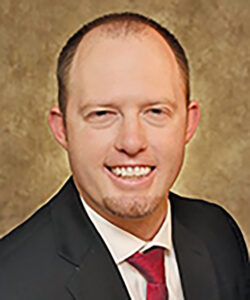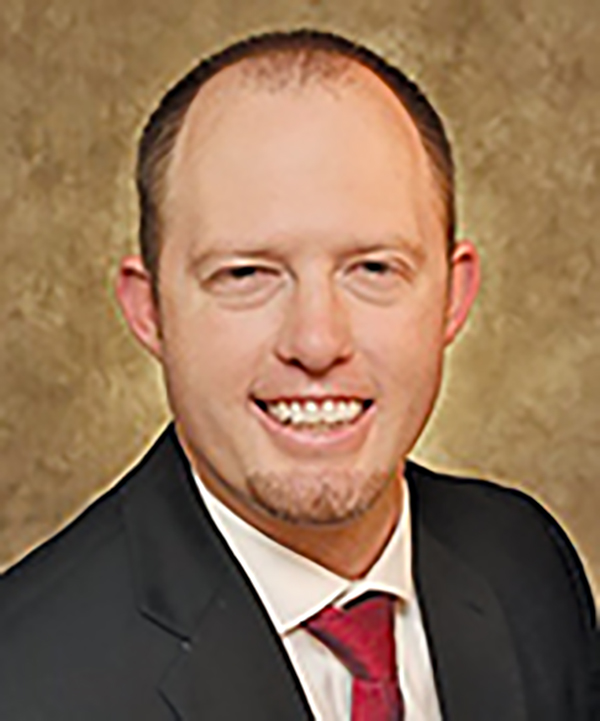By JORDAN GREEN, Editor-in-Chief

Northwestern’s recruitment strategy is one word: “Go.”
The university’s recruiters are going to high schools, going to college fairs and going to football games, telling high school students why they should come to Northwestern.
That’s according to Calleb Mosburg, the university’s dean of student affairs and enrollment management. He explained the university’s recruitment methods in an interview Oct. 11, just days after the university announced its fall enrollment is down by roughly 2.5% compared to last year.
“It’s kind of, you know, unfortunate,” Mosburg said of the enrollment decline. “We did a lot – as far as recruiting and retention efforts – a lot of work. I know that’s been put in. [It’s] definitely not for a lack of effort.”
Northwestern’s total enrollment for the semester dropped to 1,789, officials said in a news release Oct. 7, though graduate enrollment and concurrent enrollment increased.
College enrollment is down significantly across the nation, according to the National Student Clearinghouse Research Center. Researchers blamed the decline partly on the coronavirus pandemic, and also on continuing challenges universities face in recruiting male students.
This semester’s enrollment decline is the latest in a series of student headcount drops at Northwestern. In fall 2020, the university had 1,835 students, a 7% decline from 2019. Officials attributed the drop to pandemic-induced uncertainty.
The university’s enrollment also dipped in fall 2018, spring 2019, fall 2019 and spring 2020.
NWOSU’S RECRUITING ‘SECRET’
Even though enrollment is down, Mosburg said the key to growing the university’s student population remains the same: marketing Northwestern as having a family atmosphere.
“We sell on personal attention,” he said. “We sell on personalizing everything.”
Northwestern has four full-time recruiters, all of whom are Ranger alumni. When they visit schools, their goal is to share their stories of their time in college, said Mosburg, who was a recruiter himself after graduating from Northwestern.
In part, their experience as students is why recruiters undergo little formal training before they start visiting schools to lure students to Northwestern. Some recruiters have taken part in a day-long “crash course” in recruitment, Mosburg said. During busy seasons, others may talk with Mosburg for a couple of hours after visiting a school.
“We just kind of teach and go as we move forward,” Mosburg said. “To say that there’s a set, standard time when [training] happens is not usually common because it is ‘go time’ from the day school starts.
“We’ve got to look at, on the front end when we hire, are these good representatives of Northwestern? Are these people who have got a story to tell?”
‘WE’RE ALL ABOUT PEOPLE’
In addition to visiting high schools and career fairs, recruiters also reach out to prospective students through letters and social media, Mosburg said.
Also among contact methods is a billboard the university has on Interstate 35 near Guthrie. The Northwestern billboard, which faces the southbound lanes of the interstate, features pictures of various students.
Students who enrolled for the spring semester on Oct. 12 or 13 were entered for a chance to be on an upcoming billboard, Mosburg said in an email to students.
Beyond the billboard, Mosburg said he doesn’t believe spending additional funds on mass marketing campaigns is the way to rope in new Rangers.
“We could turn right back around and not have as many recruiters and start putting much more money budgeted into just marketing campaigns, but we live on personal attention,” he said. “That’s what we are there for. We call it the ‘Ranger family’ for a reason. We go see people. We’re all about people. We’re all about building that relationship.”
Recruiters start building those relationships with students while they’re in high school or junior college, Mosburg said.
He estimates each recruiter has 40 or more high schools to visit.
The university has a sufficient number of recruiters, he said, though he wouldn’t object to having a larger staff.
“I’d always be happy to have another recruiter,” Mosburg said. “But for what we do, our personal attention, how we reach out, I think we’re well-equipped.”
When building relationships, recruiters try to motivate prospective students “to the point that they finish here, they go off and do their thing and come back years later.”
Recruiters “have got to be able to tell your story, your experience,” Mosburg said. “People can see right through it if it’s a crafted, fake thing. They know it. If it’s true, then people can relate.
“[Recruiters] get a chance to be able to tell those stories. That’s what we do. That’s our secret.”
ENROLLMENT TASK FORCE TO CREATE NEW IDEAS
The job of outlining the university’s recruitment plans is left up to the Enrollment Management Task Force, comprised of faculty and staff who meet monthly to create ideas to drive up enrollment, Mosburg said.
Those ideas, Mosburg said, don’t typically come from other institutions. The task force learns from the recruitment strategies of other universities “to some extent,” he said, and officials are “all ears when there’s other thoughts and stuff being out there.”
Any communication between Northwestern and other universities isn’t necessarily two-way, he said.
“We don’t want to give away our secret, either,” he said.
“We live on personal attention. Our plans have always been successful.”

